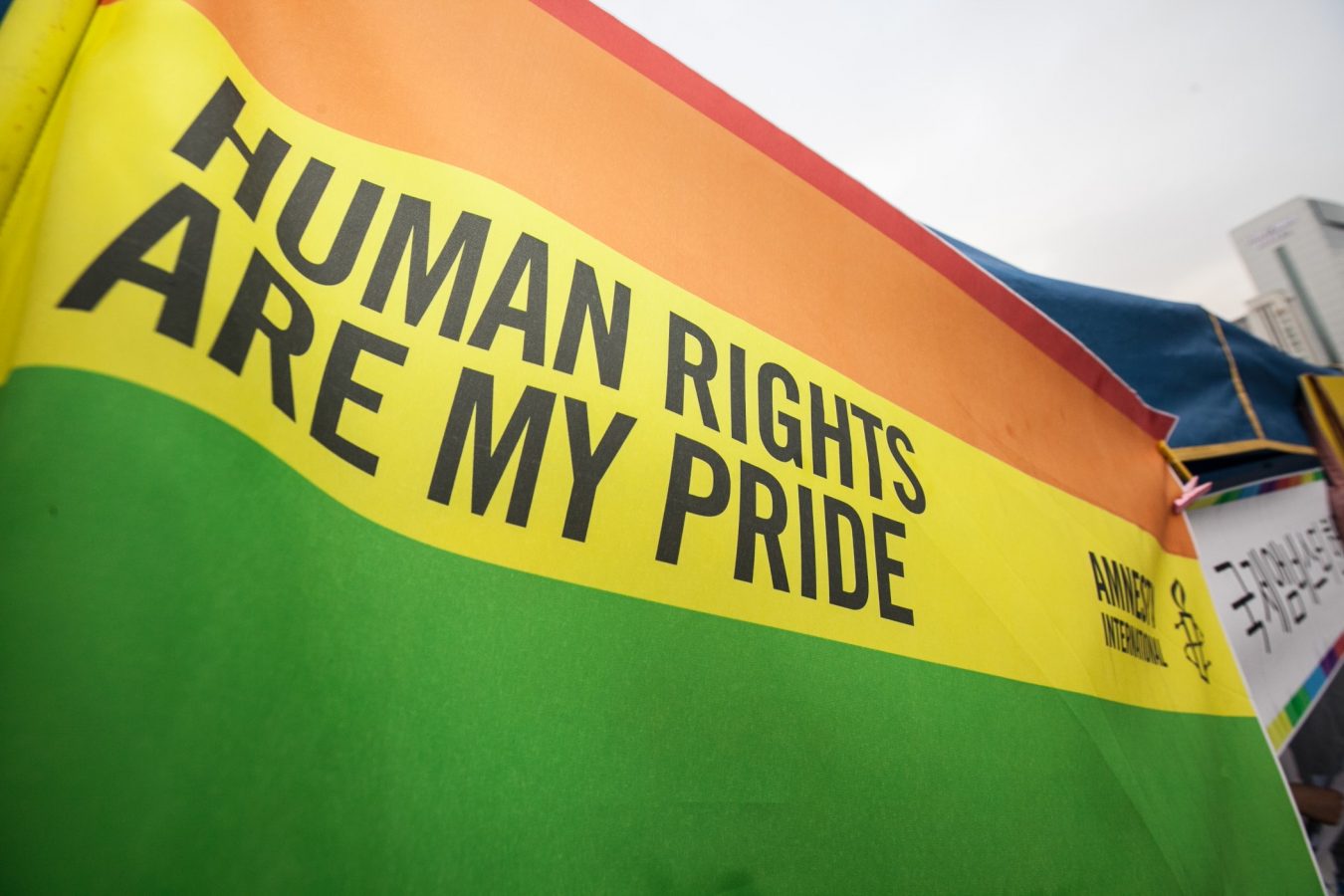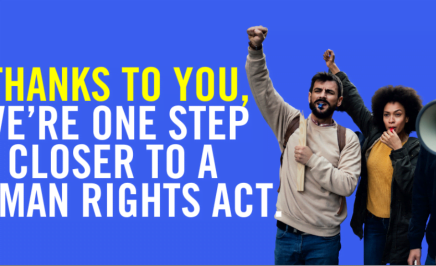Today is 3 December, International Day of Persons with Disabilities. In this blog, Amnesty International Youth Advisory Group Representative Satara Uthayakumaran explains the impact a Disability Rights Act could have for people and families living with disability in Australia.
The study of law has always been personal to me.
As a young carer of someone with a severe disability and a woman of colour, my family often had to deal with complex administrative issues and appeals processes to do with the NDIS. I therefore saw the very real impacts of the law. Coming from an intersectional background and community, I keenly felt the need for more diverse voices in the law. So I made the choice to use my legal education to elevate overlooked issues in marginalised communities.
That’s why the recent recommendation by the Royal Commission into the Violence, Abuse and Neglect of People with a Disability, to legislate a Disability Rights Act into Australian Law, hit home. However, for those of us who have long campaigned for more legal protections of basic human rights for our most vulnerable, we know that the implementation of something like a Disability Rights Act doesn’t exist in a vacuum. A much longer fight has been going on for another piece of legislation that would further support and supplement potential acts like the Disability Rights Act – a federal Human Rights Act.
A Disability Rights Act
The Disability Royal Commission was established in April 2019 as a response to community concern about reports of violence against, and the neglect, abuse and exploitation of, people with disability. One thing the commissioners highlighted was the need for a Disability Rights Act, which would reflect the principles set out in the UN Convention on the Rights of Persons with Disabilities, adapting international human rights obligations into domestic law.
Their next recommendation was to set up a National Disability Commission – an independent body led by a person with disability and comprised primarily of commissioners who have disabilities and represent disability diversity. The creation of this commission would hopefully support the recognition of people with disabilities’ human rights under the new laws, as well as promoting best practice around inclusion.The responsibilities of this commission would include conducting research, providing advice, handling complaints, and intervening in relevant court proceedings, among other duties.
A Human Rights Act
The Disability Royal Commission also crucially recognised that their recommendations for a Disability Rights Act were being made in tandem with a greater movement towards the recognition of our fundamental human rights in Australian domestic law. As such, in addition to a Disability Rights Act, many advocates have called for the enactment of a Human Rights Act at the national level. On 7 March 2023, the Australian Human Rights Commission launched Free and Equal: A Human Rights Act for Australia, a proposal for a Federal Human Rights Act.
While a recommendation about a Federal Human Rights Act was beyond what the Disability Royal Commission could address, such an Act would enhance human rights protection for all Australians, including people with a disability. For example, a Human Rights Act might include specific provisions, protecting the rights of people with a disability. If there were similar provisions in a Disability Rights Act, both would work together, to strengthen each other and reiterate the importance of having laws to protect the rights of those most vulnerable within our community.
Australia is the only liberal democracy in the world without a Human Rights Act. This means that if you believe you suffer a human rights abuse, there’s no direct process to hold those who are responsible to account, and there are often few legal remedies available. Amnesty recommends that the Federal Government develop a new National Human Rights Framework that prioritises protecting human rights in domestic law through a Human Rights Act.
As I write this, the fight for a Federal Human Rights Act is approaching a critical moment. On 22 March 2023, the Attorney-General asked the Parliamentary Joint Committee on Human Rights (PJCHR) to conduct a review of the effectiveness of Australia’s Human Rights Framework. That review is now underway, and an inquiry report is due on 31 March 2024. One of the key questions under consideration is whether the Parliament should legislate a Human Rights Act.
What Can You Do?
In the lead up to the release of the enquiry report, you can keep the pressure on our government to implement both a Disability Rights Act and a Federal Human Rights Act.
If you live in key electorates – that is, those whose MPs make up the Parliamentary Joint Committee – meet and write to your local MP! You can find a list of the relevant MPs here.
You can also sign this petition to call on Prime Minister Albanese to legislate a Human Rights Act now.
For many Australians, it’s hard to see the impact of laws passed in parliament on their day-to-day existence. But whether we realise it or not, the law plays a huge role in all our lives. For some of us, simply because of who we are and the homes we are born into, the impact is obvious from our earliest days. So I implore you to listen to the voices calling for change. As advocates of justice, we have the power and the responsibility to make sure our government legislates their international obligations into hard law so that our country’s most vulnerable can be treated with dignity and fairness.
Satara Uthayakumaran is a Youth Advisory Group Representative for Amnesty International Australia. She has written for the ABC, the ACT Human Rights Commission, the Sydney Morning Herald, The Canberra Times, SBS and Meanjin among other publications.





